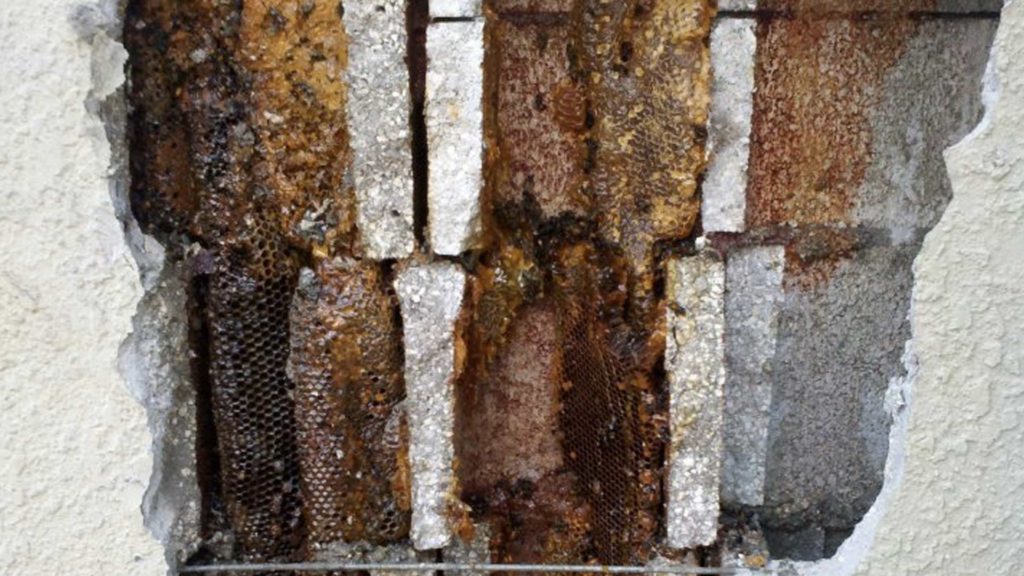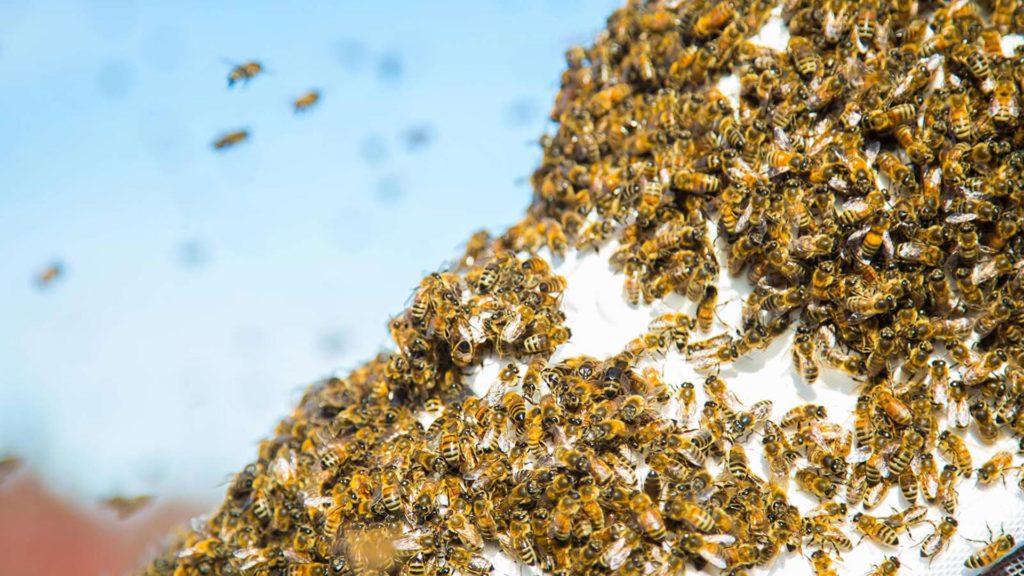Unless your bee infestation is on a city-owned right of way, it is the responsibility of the property owner to deal with an unwanted swarm or colony of honey bees. The same applies to colonies of Yellow Jackets and other stinging insects.
Your Options As A Property Owner
When honey bees call your property home, you have two options: Live Bee Removal or Bee Eradication. While honey bees are a vital agricultural resource, sometimes eradication is the only method available—usually, because there is no safe way to remove the bees or they’re a dangerous type of bee. You see, just like any other species of animal, there are different types of bees. We’re sure you’ve heard of Africanized bees, correct? That’s just one type of bee that would require eradication. Most other “feral” bees fall under the same category due to the fact that they can continually cause problems for both property owners and beekeepers alike.
Bee Removal And The Law
According to the Florida Department of Agriculture and Consumer Services, a registered beekeeper can attempt to remove and relocate an established colony of bees. As mentioned above, this is not always a feasible option.
Eradication of a colony requires the use of certain chemicals and strategies to properly exterminate the entire colony and remove all debris left behind by the colony. To do this, you must be a licensed Pest Control Operator in the State of Florida—which every bee removal technician on our team is.
It is not illegal for a licensed pest control company to eradicate bees in the state of Florida and it is often the best choice. However, if you attempt to remove them yourself, or if an unlicensed beekeeper attempts to remove them, you could be in violation of state and federal laws.
Make Sure You’re Covered
While removing a colony of problem honey bees may seem like a simple task, there is often much more involved to ensure the colony is completely and safely removed. This can involve renting special equipment, cutting into walls, floors, or attics, and properly repairing the damage.
If the person removing your bee infestation isn’t insured, licensed, or certified, you could be liable for any damages caused to you, that person, or passersby. Here at Alpine Farms Bee Removal, we have liability coverage of up to $2 million in damages, keeping you covered no matter what type of bee removal problem you have.
When looking for a bee removal solution, here are some tips for you from the FDACS:
- Ask for a beekeeper registration or pest control license number
- Ask if the company has liability insurance
- Ask about their plan to completely remove the hive
- Ask about their type of removal (eradication or relocation)
- Ask about how the damages will be repaired
- Ask how future bees will be prevented from becoming a problem.
If you have any questions about bee removal in the State of Florida, we’d be happy to answer them. Contact us today!
Get A Free Estimate
Have a bee problem at your home or business? Whether it's indoors our outdoors, we're here to help!
Service Areas
We provide professional bee removal services for the Southeast Florida area.
Indian River County, FL
St Lucie County, FL
Martin County, FL
Palm Beach County, FL
Broward County, FL


